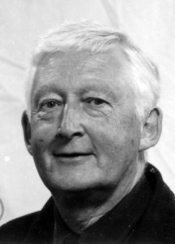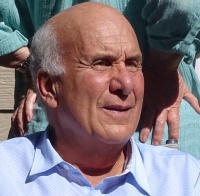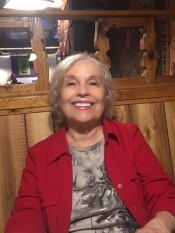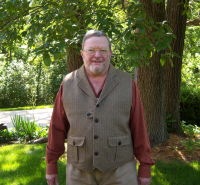.
.
.
“It’s paradoxical that the idea of living a long life appeals to everyone, but the idea of getting old doesn’t appeal to anyone.”
― Andy Rooney
.
___
.
.
I am turning 65 this month.
Wow. That’s an interesting number to type. Go ahead…Try it.
“65.”
“Sixty-five.”
It feels like a pretty big number, however, my hunch is that there are folks reading this who have already typed it, and have lived to type bigger, more imposing numbers. They may even look at “65” as a puny number.
Is 65 old age? I don’t feel. “old.”
So let’s agree, for now, that 65 is not quite .old age, but it is .one of those “in-between places.” It is an age that causes great reflection, a call to better appreciate the glories of the world and our special people within it, and, as best we can, gracefully embrace a narrowing known (and unknown) future.
Many of the poems in this March, 2019 collection – 20 poems from 18 poets – were chosen to speak to the reflection this “in-between place” provokes in me, on this day.
Thanks to our many gifted and fine contributing poets, and thanks to our readers.
Oh, and thank God (but mostly L.B.J.) for Medicare.
.
.
.
________
.
.
.
.
.
.
A Blurry Friday
A conversation with the Future,
always seems to wander.
I’m at a table with conceptual royalty,
sitting next to Freedom.
Innovation’s at the end seat,
pouring the drinks.
It’s a staggering journey,
full of laughter and foolishness.
Enlightenment seems an unlikely goal,
after the third round,
but the stories continue.
They’re doing brisk business tonight.
On stage the quartet is quietly percolating,
inching their way through
“Things Ain’t What They Used to Be”,
a sentiment we can all relate to.
The evening itself puts its feet up,
takes a swig, and recalls
the afternoons from years ago.
Even the Future wants to talk about the past,
Freedom’s content to listen,
and Innovation’s stuck in the same old rut.
It doesn’t seem right to think about tomorrow.
That’s miles away from now,
and nobody wants to leave.
Yesterday has his arms around us all.
The embrace of memory,
shared among friends,
like weightless baggage,
we carry together,
across the years.
.
by Freddington
.
.
___
.
.
Poets Row
Scattered scat in 6/8 time, matter’s not on the B street line,
Tattered threads, tortured minds, no one really knows,
Back on Poet’s Row.
.
Straight on fire, heat of night,
shattered glass, in the street fight,
Wood shed rights, NY Times,
No where to go but Poet’s Row. Woah.
.
Jim- Tracks- Heart attacks
Just the facts, rented room.
They blow their stacks, nothing to show,
going back to what I know, playing my songs
Poet’s Row.
.
Voices sing a melody,
Bells ring out a harmony,
No backs, no shoes, no rhythm, no blues,
Coming back to what I know, just playing my guitar
on Poet’s Row.
.
by Richard Beattie
.
.
___
.
.
Froggy Went A-Courting
Haverfordwest folk club, 1965
The club had characters and balladeers,
satiric tilts and big vibrato chords,
our chairman Pete, a northern ballad man,
and Spike, composer, weaving yarn-made songs
of dreams and depths and drifts and dying falls.
We also had a lanky lad from Roch
who came one week in three, strummed fun,
and roistered us his Froggy song each time:
Old Froggy went a-courtin’, he did ride.
Mmm hmm. Mmm hmm.
And we had Dylan, Baez, poetry.
The times were changing fast. We too. We too.
We travelled with the times’ extravagance.
Some folk, some blues, the Froggy song. Mmm hmm.
We postured certainly, pub socialists,
who sang ideals and ballad-strumming days.
I think of all that hasn’t happened since
but still regret no whit. We had a club
with characters and chords and talking blues,
where folk was song was youth was hope. Mmm hmm.
.
First appeared in Snakeskin (UK)
.
by Robert Nisbet
.
.
___
.
.
That’s My Beat
The air filled fat on jazz
dripping from the sides
falling like autumn leaves
being blown
by the winds of hands
clapping with
tumble and turning
running over
fast like engines roaring
purring strong pushing thick
like rocks rolling uphill
for the worshipers
of music living
breathing in the message
where it grows
branched and broad
spreading alive with
every beat
.
by Roger Singer
.
.
___
.
.
At the Back Room (I tell you, it wasn’t the booze)
.
It had been awhile
And so I brought my wife,
Her first time in the US
Her first time at a jazz club in Chicago
And there we were right up close,
And I don’t know who was playing
Or what they were playing
But, man, they were good,
And they got it going on and all of a sudden
I mean all of a sudden, the drummer lost his kit,
I’m not kiddin’ ya man, the drummer lost his kit,
Boom, right off the stage, I kid you not,
It fell off the small stage and into the audience
But the song wasn’t done and he wasn’t done
So he kept on playing with whatever he could tap on
Floor, knee, imaginary air kit, whatever,
Whatever could or might make some sound
Nobody blinked an eye till the end
When the silence snapped us out of it and then applause
I guess you could say we were all
Hypnotized. Mesmerized. Wide eyed and awed
We all sure did enjoy that ride.
.
by Dan Franch
.
.
___
.
.
for Miles Davis
(the Voodoo Ran You Down)
so what
so you left with him on the sorcerer’s train
freddie limping down a side street
weeping thru his specks & rabbit grin
these 7 steps on a quiet night lead you silently up the road ahead
in the sky black beauty kind of round about
in a green haze
remember when the living was easy & not so easy
when life wasn’t worth a plugged nickel or was it
weirdo always on the fringe cookin up a bitch’s brew in the cauldron
steamin relaxin workin diggin walkin tuning up
bluing in an old flame on a paper moon & launching the birth of the cool
there’ll be plenty more blowing tomorrow more conceptions compulsions
enigmas
paraphenalia
it never entered my mind that you’d just take off
gone great hero of my youth
godchild dreaming the serpent’s tooth
never thought yesterday would come so soon
would ever come really hard on the fast track in your own sweet way
painter of deceptions awake all the time
don’t blame me if i can’t accept you’re gone
you were it thru madness & gladness
smiling footprints sanctuary & limbo on the other car to oblivion
the other direction in my ascent & dance from the street
i thought about you all the time
& if i were a bell i’d RING as i’d follow you
someone who arrived out of nowhere like autumn leaves
a mooche
a milestone in history
a rich country son
a black comedy full of stuff
the ultimate prince of darkness
orbiting my life always agitated & loaded with ESP
won’t you please come home WATER BOY so near so far
Miles
once upon a summertime when spring was here
my lament rose as my ship waited
this is the meaning of NO BLUES
as nefertitti & the other maidens languish
in your embrace & the boxers wait for you to GO
& there is here where you are not gone here
the seed you are here where there is
NO YOU.
.
by Steve Dalachinsky
.
.
___
.
.
Undress Rehearsal
……………………..after Sharon Olds
.
All of us
hold our instruments
gingerly
it’s our Jazz at Massey Hall moment
once a year
at a nudist colony
near the Ohio state line
I’ll be Bird
you be Dizzy
a May night
in an open hall
of only tennis shoes and warm cicadas
with
alto trumpet trombone vibes guitar bass and drums
plus wives and girlfriends
who fight to hear
the tired choruses
or strain to see American flesh in abundance—
but appearances lie
that the goateed boppers knew
even back then
the first rule of jazz
it’s not the shape of a line that matters
not the bunch of notes hung like wash
after all and then erased
you have to start and finish together
note for note
trumpet and alto
the naked brass and reed
that’s how you get to Carnegie Hall
be a dragonfly tapping out Morse Code
on the bandstand
or
blow now as thou wilt be blown
.
by John Stupp
.
.
___
.
.
Coltrane’s Joy
a love supreme
a love supreme
a love supreme
she’s in my dream
she’s in my dream
she’s in my dream
a love supreme
a love supreme
a love supreme
what can it mean
what can it mean
what can it mean
a love supreme
a love supreme
a love supreme
that lasting gleam
that lasting gleam
that lasting gleam
a love supreme
a love supreme
a love supreme
.
In Ed Coletti’s collection Apollo Blue’s Harp And The God Of Song February 2019 McCaa Books, Santa Rosa, CA
by Ed Coletti
.
.
___
.
.
Moving to the Groove
She was swayback way back
much too cool
………………………………………………………………..slipping and sliding
………………………………………………………………..moving to the groove
She was hip hop can’t stop
busting a move
………………………………………………………………..slipping and sliding
………………………………………………………………..moving to the groove
She said get down don’t frown
let your hips bloom
………………………………………………………………..slipping and sliding
………………………………………………………………..moving to the groove
She said come here don’t fear
there’s lots of room
………………………………………………………………..slipping and sliding
………………………………………………………………..moving to the groove
Time went past quite fast
I learned a new tune
………………………………………………………………..slipping and sliding
………………………………………………………………..moving to the groove
Years passed nothing lasts
gone too soon
………………………………………………………………..slipping and sliding
………………………………………………………………..moving to the groove
She left I’m bereft
wanting to be
………………………………………………………………..slipping and sliding
………………………………………………………………..moving to the groove
In memory’s halls she bops
never stopping
………………………………………………………………..slipping and sliding
………………………………………………………………..moving to the groove
.
by Michael L. Newell
.
.
___
.
.
Misty
From her perch
above the human drama,
Misty, the cream-colored cat,
washed her paws clean.
She knew her way around
her master’s apartment.
Her kitten days,
faded like the album cover
by the turntable.
Ella Fitzgerald sang
the cat’s namesake’s song.
Seduction
for her master’s friend,
still irritable on the chaise lounge.
Whenever mad,
she’d kick off her pumps—
her right foot would cross her left.
After another glass
of Chardonnay,
she asked
about his thousand violins
and why his hello
no longer sounded sweet?
He poured himself
another glass of wine,
lost in words
that lost their meaning.
She took her hat and gloves,
said a swift goodbye.
The cat ran to the closed door,
encircled her master’s legs.
His eyes,
too misty to notice.
.
by Patricia Carragon
.
.
___
.
.
You Can’t Be in Heaven and on Earth at the Same Time
was how Sonny Rollins once described
wood-shedding on the Williamsburg,
neighborly complaints
leaving him to practice
on the bridge’s deck, stretching
his breath at all hours
until sturdy notes took bloom,
strident enough to serenade
cars changing lanes, the honking
seasons turning his stage hiatus
into years of playing
for many-weathered skies.
Arriving on the heels of Ornette’s
new sound, Rollins declared
his return with The Bridge,
the last cassette I’d buy
before dropping
out of college,
it’s “God Bless the Child,”
never failing to cue
an image of my skinny pal,
Stoner Bob, camped
below that underpass,
near the jail,
his rocky nook bearing
tents, torn sleeping bags
and the tags of local
wild-style legends, bent
yard-high script reading
like a code of Krylon pastels.
Then last week, a ragtag
drum-line jamming
under a yellow span had me
longing for the impossible–
a brass winged solo calling out,
far above us all.
originally published in Poet Lore
.
by Fred Shaw
.
.
___
.
.
Music for Men Over Fifty
.
1.
.
I look for my pajamas, slip them over
my swollen ankles, over my rash salved
with steroid cream, my skin starting to thin,
starting to sag and fold like crepe streamers.
Lame, I am deaf to being enabled, hammering
to pieces my Phonak hearing aids with my right brace.
2.
.
This morning, I wake to music from the Acoustic Research clock radio.
Music I’ve loved since I was old enough to love the way a woman moves
in front of the mirror when she thinks I’m not looking. I’m always looking,
disconcerting my wife who feels the same way about her belly as I do
about mine, but in a more feminine way, or so I’d like to think.
We smile at each other in the glass, side by side, love a hardship
we endure.
3.
.
How to praise your children who leave us alone to love
on this Saturday night, the Acoustic Research radio playing
the songs accompanying us to Chicago. Remember me happy
in a cab, jazz at the Green Mill, the Beetle back in the hotel parking lot.
Roll with me honey, in your dreams
roll me, honey, in your dreams.
True, it’s been awhile, and longer than I would want
but there are so many excuses, so many reasons
I choose to sleep. Not enough blood in the old
pecker so many nights. You prefer love in the dark
Roll with me honey, in your dreams
roll me, honey, in your dreams.
4.
.
I am early to rise in the morning, just not convincing
in the light. We hold on to what we love, often enough
each other, when we can see past our own mistakes,
finding what it was that took us down the I-94.
Roll with me honey, in your dreams
roll me, honey, in your dreams.
.
by Victor Enns
.
.
___
.
.
Reunion
The couple slow dancing near the old stone fireplace
sways in time to the breeze coming through the cracks
of the windows all around the hotel dance floor
and to the quintet playing some half-forgotten ballad
that elicits a gentle melancholy making the two cling
to one another more and more closely in a clumsy loving waltz.
Subtle guitar, mournful horns, restrained bass and drums
blend with wind’s whisper to highlight the couple’s murmurs,
as they seek confirmation of present, past,
and possible future in music and one another’s arms.
.
by Michael L. Newell
.
.
___
.
.
Common Prayer, Sutro Heights
.
Winds wave and sway
cypresses, whisper
matins.
.
Streetcar clangor and iron
…….rumble
are carillon and organ bass,
an Angelus.
.
A hush of surf
hums vespers.
.
All this will or was
perhaps.
.
by John Briscoe
.
.
___
.
.
A Knapsack Filled With Ghosts and Dreams: 2018
In the gloomy gray
of some autumn day
The lone whistle of a train
carries down the tracks
the end of a season, sunny and sure
And in the silence
Of one season burying another
comes a pathos so bittersweet
We hear it, as a plea
hear it in the treetops back of the woods
A presence slowly walking
No hurry – last trip
down a dirt road
We thought we heard rustling
within the crops that stretch across the Midwest
but the fields are harvested long now
left behind, only stubbles and sticks
But sad to leave
carrying a knapsack filled
with ghosts and dreams.
Barely a flicker of light remained
when once the bright compass of his being
filled sun-ups with expectancy
and sundown
with gaudy ribbons across the skies
Waved goodbye when walking across Washington State
Then Nevada
Felt fires at his back
Across California
a-flame too: No water to put out the blazes
No water to nourish the golden hills
Bees dying: skeletons of trees in Colorado
Floods in Texas
And in New York, he was stopped by the boys in blue
and put down in a stranglehold
to know for certain it was time
for a last odyssey across the earth
While glaciers melted.
A final journey through
the city of lights and the cafes where car bombs exploded
Across Africa,
dancing the famine,
drought, and genocide
Walking with Syrian refugees
towards the sea
While remembering when first coming ashore
In a rhapsody of fire and comets
Planets shooting through the skies
And stars like diamonds
splintering the universe.
Waters warmer now
and churning with hurricanes,
Tipping with overcrowded boats
Typhoons naked
spinning their requiems
out to sea
Riding the high tides of eternity,
Swimming out
Leaving behind a lost and vengeful earth
and skies forked with fires
A final farewell then
Before down
___ to under the waters
From whence he came
And going with it
his knapsack filled with ghosts and dreams.
.
by Susandale
.
.
___
.
.
Time’s Passage
…………(for Herb Ellis and Joe Pass)
In living room corner, an old guitar
strummed by wind
hums jazz chords through window cracks
and sings endlessly
through fissures of memory
with a melancholy beauty.
So too vanishing years haunt the mind
much like a full moon slowly fading,
its faint outline whispering remember me,
remember me, remember. Once heard,
jazz guitars softly sing in mind’s recesses
for a lifetime, tunes without end.
.
by Michael L. Newell
.
.
___
.
.
Jaco
Jaco
You’re 5,000 light years from Birdland now
Hell, you’re long gone uptight years from this earth
just like you were 5,000 light years ahead of us
and the vast majority of musicians
while you lived.
But hey,
you’re still preachin’ the rhythm
and teachin’ it to us
as I hope you always will.
God bless you, Jaco
and if you see him out where you are,
give my regards to Jozy.
.
by R. Bremner
.
.
___
.
.
For My Friend, Gone Fifteen Years
.
…………………..“On May 5, 2019 … Dennis Dallman.”
.
you played piano.
I played upright bass.
.
for the fun of it and friendship,
we had nicknames.
.
you were … ahmad
(for ahmad jamal).
.
me … mingus
(for charles mingus).
.
as a bond, we never
called ourselves, by anything else.
.
*****
.
after he
was gone
.
I missed that sound so much:
saying “mingus!”
.
I kept calling
his answering machine
.
just to
hear his voice
.
just one last
.
time.
.
by Alan Yount
.
.
___
.
.
The Composition of Air
For Wayne Van Cortlandt Smith, January, 29, 1939 – June 9, 2018
…………………“Did you know the first three notes of…”
…………………………..(What was it?)
…………………“are the same as …?”
.
Why didn’t I pay attention…then?
Capture those motes of precious ‘did you knows?‘
not understanding how important they would be now—
the ache to remember their blessed curiosity,
so acute?
But I didn’t.
But I remember,
these are the kinds of things
only Wayne Smith would know and declare,
as casually or intensely, as he might share
his newly found passion for the periodic tables,
would know how Johann Sebastian
breathed the same measures of air,
centuries before they made their rounds again
to pass through the alveoli of Debussy,
to Bill Evans…and on, and on.
Notes filling the lungs
of those born to make sense
of the myriad juxtapositional possibilities
swarming the universe—
passing the rest of us by on a breeze.
That air, only some of us can divine—
from lungs to brain to heart—
alloted their chosen place,
by chosen fingers, then shared—
became quintessentially Wayne’s notes.
Three, might fill the lungs
of some yet unborn jazz-child
as it gasps its first breath,
hears its first notes.
.
by Lia Di Stefano
.
.
___
.
.
Just Play My Music
Never-mind what the preacher has to say
Play Miles, Seven Steps to Heaven on my
parting day, follow him with Coltrane’s
In a Sentimental Way
Then, Billie’s Good Morning Heartache
and her Ghost of Yesterday, to remember
my broken heart ‘til my dying day
just play my music, best do what I say
Have Nina Simon do a serenade with
Just Say I love Him, I want my send-off
to be one cool-ass jam, include Mississippi
Goddamn and Sinnerman
Last song on my itinerary, Brubeck’s Take Five
and please don’t cry, just play my music as my
good bye
.
by Aurora M. Lewis
.
.
___
.
Freddington works as a shipper/receiver in Toronto, Canada, and has been a lifelong jazz fan ever since he was “corrupted” as a teenager by Charles Mingus’ “Wednesday Night Prayer Meeting.”
.
.
___
.
.

.
Richard Beattie is a writer, journalist, composer and lyricist. Beattie grew up in New York where he was in musical theater from an early age. He learned his trade on famous streets; Broadway, Madison Avenue, and Bleeker Street. In 1978, he moved to Poet’s Row in the Capitol Hill neighborhood of Denver, where he thrived while working with artists from jazz bands. He is currently a reporter and news anchor at KVOR in Colorado Springs, and curator for the Library of Creative Harvest.
.
.
___
.
.

.
Robert Nisbet.is a Welsh poet whose work has been published in roughly equal measures in Britain and the USA, in the latter case quite regularly in. San Pedro River Review, Red .River Review. and. Panoply, which made him one of its Editor’s Choice Featured Poets in their Fall 2017 issue
.
.
___
.
.

.
Roger Singer is a prolific and accomplished contributing poet who we have proudly published for many years. Singer has had almost 800 poems published in magazines, periodicals and online journals — 400 of which are jazz poems — and has recently self-published a Kindle edition of his book of jazz poetry called Poetic Jazz.
“Jazz poetry flows out with such ease,” Singer writes on his blog. “The people and places, the alleys and sawdust jazz clubs. The stories that bring jazz alive with horns and voices, from sadness and grief to highs at midnight and love gone wrong. The jazz is within us all. Find your poem and feel the music.”
.
.
___
.
.

.
Dan Franch, who grew up in the Chicagoland area, currently lives and teaches English in Estonia. A former newspaper columnist and co-cartoonist, these days Dan is venturing into the field of coaching, communication and confidence coaching in particular.
.
.
___
.
.

.
Poet/collagist Steve Dalachinsky was born in Brooklyn (1946)
after the last big war and has managed to survive lots of little wars. His book The Final Nite (Ugly Duckling Presse) won the PEN Oakland National Book Award. His latest CDs are The Fallout of Dreams with Dave Liebman and Richie Beirach (Roguart 2014) and ec(H)o-system with the French art-rock group, the Snobs (Bambalam 2015). He has received both the Kafka and Acker Awards and is a 2014 recipient of a Chevalier D’ le Ordre des Artes et Lettres. His poem “Particle Fever” was nominated for a 2015 Pushcart Prize. His books include: Fools Gold (2014 feral press). a superintendent’s eyes (revised and expanded 2013/14 – unbearable/autonomedia). flying home, a collaboration with German visual artist Sig Bang Schmidt (Paris Lit Up Press 2015). “The Invisible Ray” (Overpass Press – 2016) with artwork by Shalom Neuman. Frozen Heatwave, a collaboration with Yuko Otomo (Luna Bissonte Prods 2017) and Black Magic (New Feral Press 2017). His column “outtakes” appears regularly in the Brooklyn Rail. His most recent books are Where Night and Day Become One – the French Poems (a selection 1983-2017) (Great Weather for Media 2018) and The Chicken Whisper ( Positive Magnets Press 2018).
.
___
.
.

.
John Stupp’s third poetry collection.Pawleys Island was published in 2017 by Finishing Line Press. His manuscript Summer Job won the 2017 Cathy Smith Bowers Poetry Prize and will be published in 2018 by Main Street Rag. He lives near Pittsburgh, Pennsylvania. From 1975-1985 he worked professionally as a mediocre jazz guitarist.
.
.
___
.
.

.
Ed Coletti is a poet, painter, fiction writer and middling chess player. Previously, he served for three years as an Army Officer, then as a Counselor and later as a Small Business Consultant. Recent poems have appeared in The Brooklyn Rail, North American Review, Volt, Spillway, and Blueline. A recent poetry collection was titled The Problem With Breathing (Edwin Smith Publishing –Little Rock- 2015). His book Apollo Blue’s Harp And The Gods Of Song was more recently published by McCaa Books February 2019. Ed also curates the popular ten-year-old blog “No Money In Poetry” http://edwardcolettispoetryblog.blogspot.com/
He lives with his wife Joyce in Santa Rosa, California where they lost their home during the October 2018 firestorm. The Coletti’s happily have relocated successfully elsewhere in Santa Rosa.
.
.
___
.
.
Michael L. Newell is a retired English/Theatre teacher who lived abroad for more than two decades. He now lives on the Oregon coast. He has recently had poems in. Ship of Fools, Current, and. Verse-Virtual.
.
.
___
.
.

Patricia Carragon’s recent publications include Bear Creek Haiku, First Literary Review-East, A Gathering of the Tribes, The Café Review, Muddy River Poetry Review, Poetrybay, and Krytyka Literacka. Her latest books are The Cupcake Chronicles (Poets Wear Prada) and Innocence (Finishing Line Press). Patricia hosts the Brooklyn-based Brownstone Poets and is the editor-in-chief of its annual anthology. She is an executive editor for Home Planet News Online.
.
.
___
.
.

.
Fred Shaw is a graduate of the University of Pittsburgh, and Carlow University, where he received his MFA. He teaches writing and literature at Point Park University and Carlow University in Pittsburgh, PA. His debut full-length collection, Scraping Away, is forthcoming from CavanKerry Press. A book reviewer and Poetry Editor for Pittsburgh Quarterly, his poem, “Argot,” is featured in the 2018 full-length documentary, Eating & Working & Eating & Working by filmmaker David Bernabo. The film focuses on the lives of local service-industry workers. He lives in Pittsburgh with his wife and rescued hound dog.
.
.
___
.
.

.
Victor Enns reads and writes poetry and fiction. He lives in Gimli, Manitoba, Canada. His first jazz show was Count Basie, with the Count still at the piano, at the old Civic Auditorium in Winnipeg. Some of these poems are appearing in a new book called Love & Surgery, published September 2019, by Radiant Press in Regina, Saskatchewan. Afghanistan Confessions, poems in the voice of Canadian soldiers, was published in 2014, boy in 2012. Lucky Man (2005) was nominated for the McNally Robinson Manitoba Book of the Year award.
His poems have appeared in Canadian publications and including Rattle (print) and Shot Glass Journal (online) in the U.S. His most memorable performance this century was a mainly Mingus show led by Toronto bassist David Young (originally from Winnipeg) with an eight piece band at the Rex in Toronto.
.
.
___
.
.
John Briscoe’s poetry has appeared in Antioch Review, Catamaran and Berkeley Poetry Review, among others. He is the author of five books, most recently Crush: The Triumph of California Wine (University of Nevada Press, September 2018).
.
.
___
.
.

.
Susandale’s poems and fiction are on .WestWard Quarterly, Mad Swirl, Penman Review, The Voices Project, .and .Jerry Jazz Musician. In 2007, she won the grand prize for poetry from .Oneswan. The Spaces Among Spaces. from. languageandculture.org .has been on the Internet.. Bending the Spaces of Time .from. Barometric Pressure is on the Internet now.
.
.
___
.
.

.
R. Bremner hails from Glen Ridge via Lyndhurst, NJ. Ron writes of incense, peppermints, and the color of time in such journals as .International Poetry Review, Passaic Review, and .Shot Glass Journal. Some of his best Friday nights were spent at the bar of the. Knickerbocker Lounge in NYC, grooving to Sir Roland Hanna.
.
.
___
.
.

.
Alan Yount, 71, has written and published poetry for over 50 years. His many poems have appeared over the years in publications such as WestWard Quarterly (where he was invited to be the Featured Writer and Poet for the summer, 2018 issue), Big Scream, Green’s Magazine (Canada), Spring: the Journal of the E.E. Cummings Society (academic journal), Wind, Legend, Roanoke Review, Tidepool, Art Centering Magazine (Zen Center of Hawaii), Wormwood Review, Palo Alto Review, Barefoot Grass Journal, Frontier: Custom & Archetype, Modern Haiku, and The Pegasus Review.
He has been in three anthologies: Passionate Hearts (New World Library), Sunflowers and Locomotives: Songs for Allen Ginsberg (published by Nada Press and the poet David Cope). Alan was one of 31 poets along with Gary Snyder and Lawrence Ferlinghetti. The third anthology was The Chrysalis Reader.
Alan also plays jazz trumpet, and has led his own dance band. He is. a direct descendant of the famous frontiersman, Daniel Boone.
.
.
___
.
.
.
Lia Di Stefano has a BFA from The Cooper Union in Fine Arts, and a MA in Media Studies from the New School. She lives in Weehawken and Califon, NJ. She has always been enamored of words. As a graphic designer, she is concerned with word and image, and how their juxtaposition on a page reinforces the message they are charged with conveying. As a fine artist, she is invested in the dialog between color, form, light, space, to shape the viewers experience. In her writing, she uses words to draw out the music of her ideas, the colors, forms, and spaces engendered in the mind of a listener or reader. Music too, of most every ilk, has always been a ubiquitous presence in her life. She is married to the mostly jazz composer/musician, N.H. Derwyn Holder—and Wayne Smith was his best friend.
.
.
___
.
.

.
Aurora M. Lewis is a retiree. In her 50’s she received a Certificate in Creative Writing-General Studies, with honors from UCLA. Her poems, short stories, and nonfiction have been accepted by.The Literary Hatchet, Gemini Magazine, Persimmon Tree, Jerry Jazz Musician, and The Blue Nib, to name only a few. Aurora’s poetry was nominated by Gemini Magazine in 2010 for Best of the Net and a Pushcart Prize in 2011. The Literary Hatchet has nominated her for the current Pushcart Prize.
.
.
.
.

































I must say that what with Dan Franch’s drummer, John Stupp’s nudists and Michael Newell moving to the groove, there’s a lot of fun to be had in this issue! I enjoyed Aurora’s musical compilation too.
I’m enjoying an ongoing reading through the anthology – warm wishes to all.
Sitting on my sofa and reading this fine collection while listening to a gentle rain, and the songs of spring – hungry bird songs. It’s a perfect day.
I’m in love with these poems. Paying homage to the feelings and times gone by, and watching those emotions broadcast their seeds into the future. Ahh, the imagery of your experiences loaned to me for a moment.
Much gratitude.
Its a privilege to have the eyesight to read these poems, and a true honor to be able to feel them.
Thank you to ALL for your contribution to my perfect day.
I liked the lyric simplicity of Roger Singer’s poem and the density, the richness of Steve Dalachinsky’s.
Congratulations to the poets in this issue:
Alan Yount, Aurora Lewis, dan franch, Ed Coletti, fred shaw, Freddington, john briscoe, John Stupp, Lia Di Stefano, Michael L. Newell, r. bremner, richard beattie, Robert Nisbet, Roger Singer, steven dalachinsky, Susandale, Victor Enns
A superb issue, and thank you Joe for your dedication and love for jazz poetry.
Fun, rhymes, and snappy songs swinging along while drummers don’t miss a beat. you publish great poets, Joe, and in their own unique ways … all are remembering
I like the images in the words. No , 65 is definitely not old.
Loved this issue! Made me move and brought back memories! 65? Not old at all.